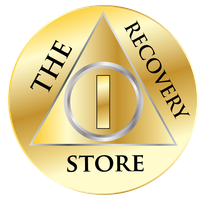
YAY! Our New Site Is Live!
Message posted: October 31, 2025.
We have redesigned the site. If you reached this page, you may have followed a link from the old site that doesn't have a corresponding page on the new site.
That doesn't mean we don't have that product, though! Please click on the categories above or type into the search field.
We are adding products weekly until we get all of our inventory up (thousands of products). So check back often!
If you don't find what you are looking for and you think we might have it, just not on the website yet, please call or write us!
Also, all customer data has been transferred, but we could not (for your protection) transfer your password. So, if you have trouble logging in, please "reset" your password.
Thank you for allowing us to be of service and for supporting us in The Meeting Space, a nonprofit that hosts 111 meetings a week for people healing from addiction, codependency and PTSD.
